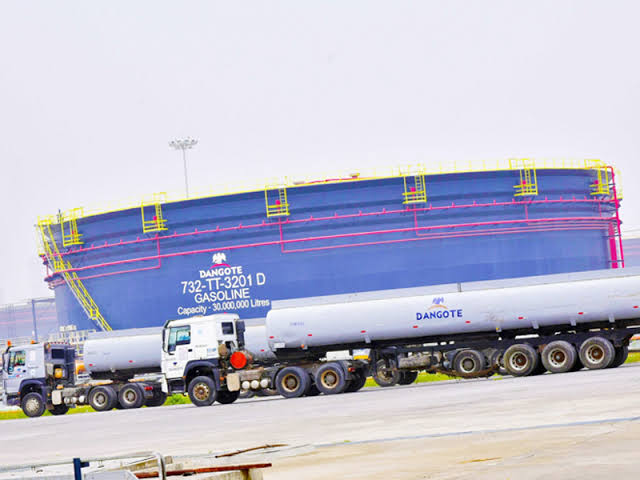The Independent Petroleum Marketers Association of Nigeria (IPMAN) and Petroleum Retail Outlet Owners Association of Nigeria (PETROAN) are poised for crucial talks with Dangote Petroleum Refinery to finalize agreements on petrol lifting and pricing.
IPMAN’s National Publicity Secretary, Chinedu Ukadike, revealed that the association hopes to meet with Dangote officials between Tuesday and Wednesday. “We hope to sit down with Dangote maybe Tuesday or Wednesday and if they give us a template or price, we will move to Dangote.”
PETROAN President, Billy Gillis-Harry, confirmed that his group had been asked to resend their request to lift petrol from the plant. “We have written to them several times and they are fully aware of what PETROAN has been doing… We are willing to take products from all of them, NNPC, traders, importers, Dangote refinery, modular refineries, etc.”
Gillis-Harry expressed optimism that petrol prices might drop soon. “The price can be knocked down to N700/litre; it depends on the volatility of the market… If we have massive supply and there is a lot of products in Nigeria, obviously everybody will be looking for just minimal profit.”
Ukadike noted that the Nigerian Midstream and Downstream Petroleum Regulatory Authority (NMDPRA) had issued a bulk purchase license for independent marketers to off-take from Dangote refinery. “The NMDPRA has issued a bulk purchase license for independent marketers so that we can offtake from the Dangote refinery… We have also been promised an import license.”
Ukadike addressed the debt owed to oil dealers by NNPC, stating that the corporation’s boss had agreed to load out all outstanding tickets. “The NNPC boss has agreed to load out all our tickets that are in their system and unlock the money.”
IPMAN sought government assistance in financing by creating an energy bank to assist marketers, citing huge interest rates affecting price increases. “Before the subsidy removal, we bought products at N8.1m, but now we are buying it close to N50m. How many people can survive that?”
The associations’ efforts aim to enhance the country’s fuel supply chain stability and efficiency, ensuring healthy competition in the downstream oil sector.


